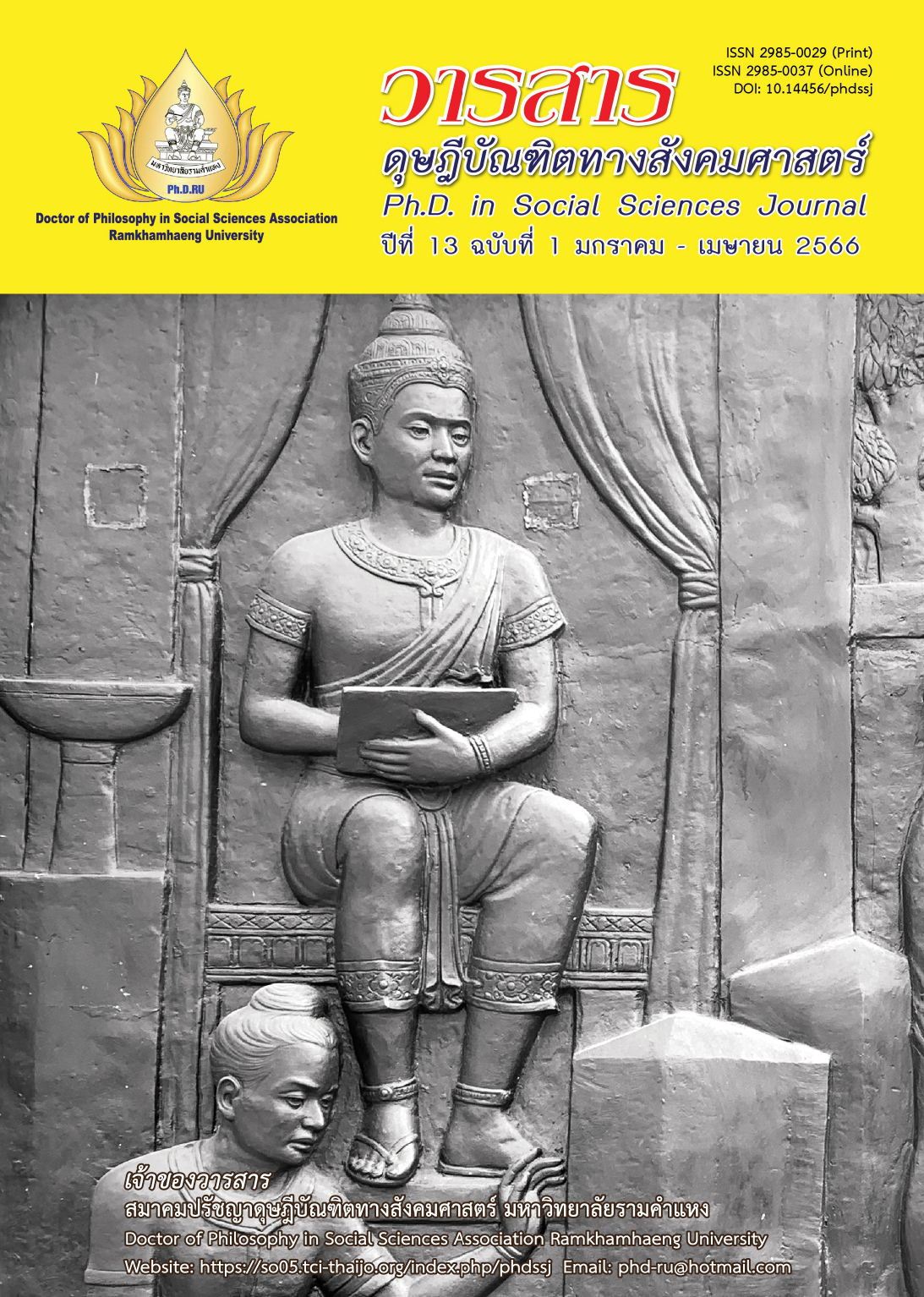The Innovation Management Approach of the Modern Automotive Industry
Main Article Content
Abstract
This research article aims to present an innovative management approach in the modern automotive industry. by using a qualitative research method. The sample group consisted of (1) 3 executives involved in innovation management of companies that received awards for quality, process excellence, and international brands (2) the Chairman of the Federation of Thai Industries, Chonburi (3) Representatives of the Board of Investment; and (4) a total of 8 executives of government agencies on labor and skilled labor welfare in Chachoengsao, Chonburi, and Rayong, and in-depth interviews were conducted with all of them to collect data.
The results of the research reveal that: In this regard, the researcher could summarize the research results according to the research objective. For the innovation management guidelines of the modern automotive industry, it was found that the executives and representatives of the sample group agreed on the 4 aspects of the innovation management issues, consisting of (1) human resource management (2) entrepreneurial leadership (3) digital transformation, and (4) knowledge management. To drive innovations in modern vehicles, the government should promote the following issues: (1) Policies for government integration (2) Policies to encourage investment and(3) Education policy. And guidelines for building knowledge management of automotive and parts organizations in the modern automotive industry Automobile and parts manufacturers must focus on timely knowledge management processes to enable product innovation. Affect organizational change under the design of the learning process.
Article Details

This work is licensed under a Creative Commons Attribution-NonCommercial-NoDerivatives 4.0 International License.
Academic articles, research articles, and book reviews in the Ph.D. in Social Sciences Journal are author’s opinions, and not the publisher’s, and is not the responsibility of the Ph.D. in Social Sciences Journal Philosophy Association, Ramkhamhaeng University. (In the case that research is done on human, the researcher has to be trained in Ethics for Doing Research on Human Training and has to produce the evidence of the training).
References
Brettel, M., Chomik, C., & Flatten, T. C. (2014). How organizational culture influences innovativeness, proactiveness, and risk-taking: Fostering entrepreneurial orientation in SMEs. Journal of Small Business Management, 53(4), 868-885.
Burchardt, C., & Maisch, B. (2019). Digitalization needs a cultural change: Examples of applying agility and open innovation to drive the digital transformation. Procedia CIRP, 84, 112-117.
Chulalongkorn University Intellectual Property Institute (CUIP). (2017). Technology and industry trend analysis report new automotive industry: Intellectual property innovation driven enterprise (IP IDE center). Author. [In Thai]
Dela Cruz, A. L. (2016). Understanding entrepreneurial leadership and roles: An exploratory study of Filipino American entrepreneurs managing a sustainable business venture in Alaska. Capella University.
Apaitan, T., Ananchotikul, N., & Disyatat, P. (2017). Structural transformation in Thailand: A perspective through product innovation. Retrieved from https://www.pier.or.th/files/conferences/2017/pier_symposium_2017_1_1_paper.pdf
Endl, A., Tost, M., Hitch, M., Moser, P., & Feiel, S. (2021). Europe’s mining innovation trends and their contribution to the sustainable development goals: Blind spots and strong points. Resources Policy, 74, 1-11.
Frank, A. G., Mendes, G. H., Ayala, N. F., & Ghezzi, A. (2019). Servitization and Industry 4.0 convergence in the digital transformation of product firms: A business model innovation perspective. Technological Forecasting and Social Change, 141, 341-351.
Garicano, L., & Rossi-Hansberg, E. (2015). Knowledge-based hierarchies: Using organizations to understand the economy. Economics, 7(1), 1-30.
Karayev, R., & Naghiyev, M. (2012). Cognitive approach in development of innovation management models for company. Procedia-Social and Behavioral Sciences, 58, 812-819.
Kremer, H., Villamor, I., & Aguinis, H. (2019). Innovation leadership: Best-practice recommendations for promoting employee creativity, voice, and knowledge sharing. Business Horizons, 62(1), 65-74.
Li, W., & Li, Y. (2018). A study on the collaborative management method of product design cycle knowledge. Multimedia Tools and Applications, 77(21), 27877-27894.
Ministry of Industry. (2016). Strategy for the development of Thai industry 4.0 for 20 Year (2017-2036). Author. [In Thai]
Ministry of Industry, Thailand Automotive Institute. (2012). Master plan for automotive industry 2012-2016. Author. [In Thai]
National Science and Technology Development Agency, Policy Research Department. (2017). Electric vehicle industry study report. Author. [In Thai]
Office of Permanent Secretary, Strategy and Planning division, Strategy Group. (2016). Strategic plan of the Ministry of Industry 2017-2021 (revision for the fiscal year 2020). Author. [In Thai]
Pakasat, N., & Piriyaparin, T. (2015). A causal relationship model of product innovation. Veridian E-Journal, Silpakorn University (Humanities, Social Sciences and Arts), 8(2), 141-161. [In Thai]
Ren, S., & Jackson, S. E. (2019). HRM institutional entrepreneurship for sustainable business organizations. Human Resource Management Review, 30(3), 1-18.
Simsit, Z. T., Vayvay, O., & Ozturk, O. (2014). An outline of innovation management process: Building a framework for managers to implement innovation. Procedia-Social and Behavioral Sciences, 150, 690-699.
Wikhamn, W. (2019). Innovation, sustainable HRM and customer satisfaction. International Journal of Hospitality Management, 76(6), 102-110.
Wu, I., & Hu, Y. (2018). Open innovation-based knowledge management implementation: A mediating role of knowledge management design. Journal of Knowledge Management, 22(8), 1736-1756.
Wutthirong, P. (2011). Five Innovation organizations of Thailand: The differences in similarity of human resource management. NIDA Development Journal, 51(3), 35-57. [In Thai]


